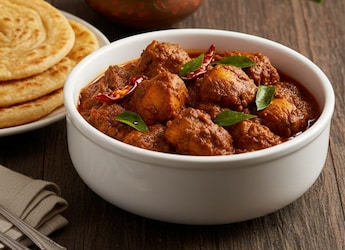Whether you're enjoying a picnic or a meal at home, the presence of a housefly near you and your food can disrupt your dining experience. Houseflies often circle and attempt to land on your food, posing a risk as they are carriers of pathogens linked to severe and life-threatening diseases like typhoid fever, dysentery, cholera, and tuberculosis, according to the US National Institute of Health. While many people relish chaats and street food from curbside stands and stalls, it's strongly advised to avoid consuming such contaminated food when flies are present, as it can jeopardize your health.
Photo Credit: iStock
Here's Why You Should Never Eat Food Touched By Flies
House flies regularly feed on faeces and other decomposing organic materials. During their feeding process, pathogens adhere to their mouthparts, wings, legs, and other body surfaces, according to a 2018 paper published in the 'BMC Public Health' journal. When a housefly lands on your food or in your drinking water, it can transfer these disease-causing pathogens to your consumables.
Also Read: A Lazy Person's Guide to Food Hygiene
Here's How Flies Eat Their (Or Your) Food
A lot of people think that flies directly start eating the food once it sits on it. However, flies don't have teeth, so they cannot take a bite out of the food or chew it. This is where the fly-eating-our-food gets even more gross. To eat the food, the fly spits out or vomits some enzyme-rich saliva on your food, explains The University of Sydney on their website. This saliva contains digestive enzymes that dissolve or break down the food. The fly then sucks up this mix of digestive fluids that has partially dissolved food in it. Wait, it gets worse. While vomiting on the food, the fly can also poop on it. Further, a female fly can also lay eggs on your food.
Also Read: Rats Caught 'Eating Food On Display At UK Shop', Fined Over 26,000 Pounds
How To Prevent Flies From Touching Your Food
While it might be okay to consume food if a fly comes in contact and you immediately shoo it away, it is best to avoid eating food that has come in contact with one or more flies for longer. Here are some ways to prevent a housefly from coming in contact with your food in the first place:
1. Avoid eating food outdoors or from street-side vendors, especially if the environment seems unhygienic.
2. Here is a trick shared by Pestline, a pest control service in Melbourne. Place 6 cloves inside half a lemon; do the same for 3-4 lemon halves and leave them on the kitchen counter or anywhere else you keep food. The scent of these ingredients can help keep flies away.
3. Ensure you clean your kitchen and house regularly to prevent attracting any flies.
4. If you are planning an outdoor dinner, dim the lights or use yellow bulbs to prevent attracting flies and mosquitoes.
5. You can also use an alcohol-based mouthwash to repel flies from coming around your food. This tip is also shared by Pestline. Put the mouthwash in a spray bottle and spray it on the legs of tables and chairs around the food.
Use these techniques to keep flies away from your food and prevent catching any infections.
